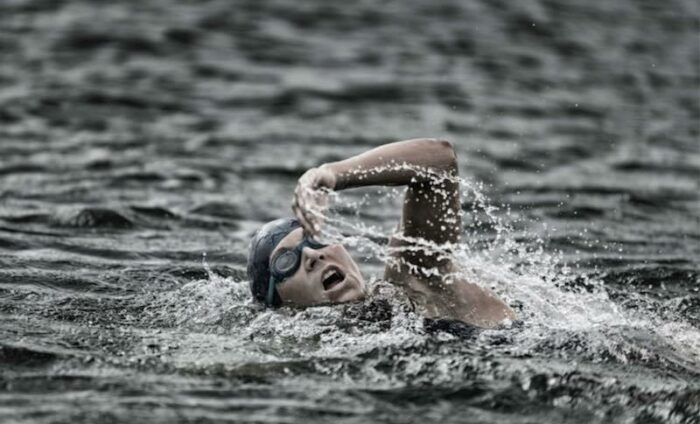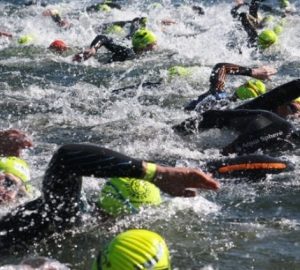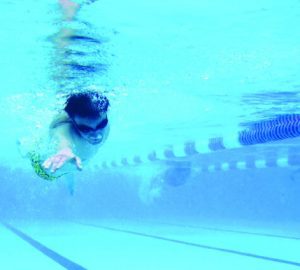
“I’m scared of getting fatigued on a long swim”
Preparing psychologically as well as physically for swimming long distances can help prevent fear of fatigue, says Helen Davis
Long distance swimming can be an activity where participants push themselves to their physiological and psychological limits. Setting yourself a big challenge of a long swim can present not only physical challenges, but psychological ones. Taking time to prepare well, not only from a physical perspective, but a psychological one is a good investment for how to cope with fear of fatigue.
FATIGUE
Fatigue in long distance swimming is something swimmers have to deal with. It can give swimmers a sense that they are not making any progress, even if their arms and legs are moving. Technique and swimming style suffer and breathing patterns can become irregular. These physical factors can affect your psychological state and your thoughts and feelings can alter as you continue swimming. How can you effectively combat fear of fatigue?
Focusing on physical and psychological factors to help you prepare for a long-distance swim can help to keep control of your thinking. “I’m scared of getting fatigue during a long swim” is an example of future-thinking which can inflate your worry and concerns about the event. Taking control of your planning and preparation can help to divert attention away from anxiety provoking thoughts. Try adopting some of the following strategies to combat fear of fatigue.
PHYSICAL PREPARATION
Changing your stroke
Changing your stroke throughout the swim enables you to use different sets of muscles. Backstroke is particularly good for catching your breath and steadying breathing.
Switch effort
You could try switching effort between your arms and your legs. For example, ease your arms off and concentrate on generating some momentum with your kick, giving time for your arms to relax.
Minimise energy
Try minimising energy by holding your glide for as long as you can or working on efficient technique to establish some rhythm and control to your swimming.
Praise yourself
Physical preparation is about the weeks and months of hard work and physical training leading up to the long-distance swim. Feeling ‘ready’ from a physical perspective before a long swim is important as it can give you a greater likelihood of a successful outcome. Remind yourself of all the training and effort you have put in, rather than what you haven’t done. Avoid thinking of the barriers to training – focus on what you have done.
PSYCHOLOGICAL PREPARATION
Use your preparation to help you
Try and see preparation as a ‘resource’ that can help you. Dedicate time to thinking about all the preparatory factors you have invested time in to help yourself complete your swim. Psychological preparation can help you by:
Boosting confidence
Reminding yourself of your preparation strategies can fuel your self-confidence and help you believe you can manage fatigue.
Getting into character
Take the view that preparation is helping you to ‘get into character’ ready for your long swim. Adding up all the things you have done to help you prepare for fatigue can help you believe that you will be successful.
Focusing when preparing
Remind yourself when you are preparing for an event why you enjoy doing what you do and why you have given yourself this goal. This can help to reduce stress before the big day and help you adopt a positive approach.
Visualise success
In advance of the swim, picture yourself coping with fatigue by using some of the strategies suggested. Visualisation has proven to be very successful in preparing swimmers for challenging situations.
Positive self-talk
Positive self-talk is about recognising and seeking the positive out of the negative to help you do better, go further or just keep moving forward – all elements to help you in a long swim. Plan some trigger words or phrases to say to yourself to keep spirits up and keep going.
Plan to break it up
Breaking your swim up in your head in terms of time and distance and having a specific focus for each section can make distances feel more manageable.
Relaxation
Having a plan for working on staying relaxed can help you keep focus, remain calm and think clearly during your swim.
Disassociate
Fatigue can cause your psychological state to change where you lose focus and start thinking about how tired you are or how your arms ache. Having a strategic disassociation plan for fatigue may be helpful. This is where you ‘separate’ or ‘remove’ your mind from what you are doing. You might concentrate on singing a song to the rhythm of your stroke, counting or noticing details in your immediate environment.
A long swim can present many physical and psychological challenges. Reminding yourself of your goals, your physical preparation and planning and practising psychological strategies can collectively help you adopt a positive approach, minimise fears about fatigue and enjoy the process. Good luck!
Helen Davis is a swimmer and sport psychology consultant who works with individuals, teams and coaches on their sporting performance. Each month, Helen will suggest psychological techniques to help overcome difficult open water swimming scenarios.
@helenDav2245







